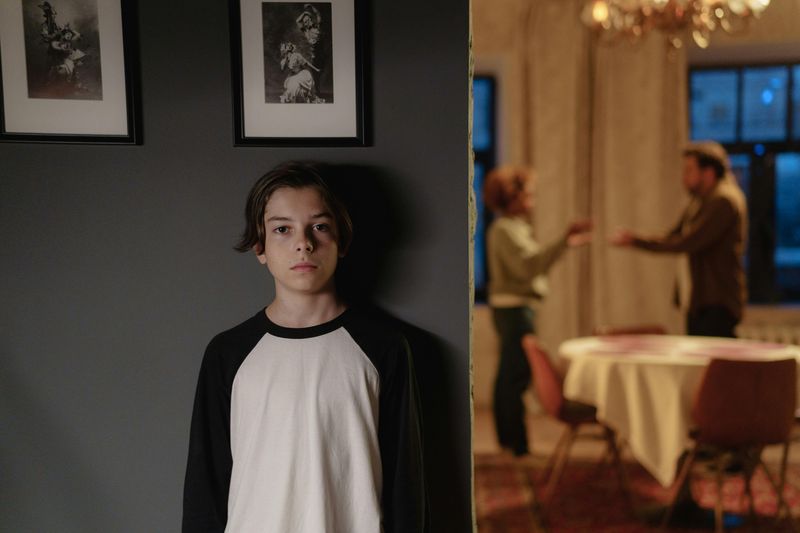10 Reasons People Stay in Relationships Long After They Should Leave

Breaking up is never easy, but sometimes staying together is even harder. Millions of people around the world find themselves stuck in relationships that stopped working long ago. They know deep down that something needs to change, yet they can’t seem to walk away.
Understanding why people stay can help us recognize these patterns in ourselves or support loved ones who might be struggling with the same difficult choice.
1. Fear of Being Alone

Silence can feel deafening when you’ve grown used to constant company. Even when a relationship brings more stress than joy, the idea of coming home to an empty apartment makes some people freeze in place. They’d rather deal with arguments and distance than face the unknown territory of being single again.
This fear often stems from believing that being alone means being unwanted or unlovable. Friends and hobbies might have faded during the relationship, making the outside world feel even more intimidating. The familiar routine, even if it’s painful, becomes a security blanket that’s hard to let go.
But here’s the truth: being alone and being lonely are two different things. Sometimes the loneliest moments happen while sitting right next to someone who no longer sees you. Learning to enjoy your own company can be one of life’s most liberating experiences, opening doors to rediscovering who you really are.
2. Emotional Investment

Years of building a life together create invisible chains that are surprisingly strong. Every birthday celebration, every inside joke, every vacation photo represents time and emotional energy poured into the relationship. Walking away can feel like throwing all those precious moments into the trash, as if they never mattered at all.
People often fall into what psychologists call the “sunk cost fallacy.” They think about all the anniversaries celebrated and challenges overcome together. The longer the relationship has lasted, the harder it becomes to admit that continuing might be a mistake. It feels wasteful to start over when you’ve already invested so much.
Yet holding onto something broken just because you spent time on it doesn’t make logical sense. Those memories and lessons remain valuable regardless of whether the relationship continues. Sometimes the bravest thing is acknowledging that what once worked beautifully has run its natural course.
3. Hope They’ll Change

Remember when they used to surprise you with your favorite coffee? When they’d actually listen instead of scrolling through their phone? Those golden memories become lifelines that people cling to desperately. They convince themselves that the person they fell in love with is still in there somewhere, just waiting to reemerge.
Every small gesture gets magnified into proof that change is coming. A single kind word after weeks of coldness becomes evidence that things are turning around. They make excuses—work stress, family problems, bad timing—believing that once these external factors disappear, everything will magically return to how it used to be.
The painful reality is that people only change when they genuinely want to, not because someone else is waiting patiently on the sidelines. Hoping for transformation that never arrives can steal years from your life. Sometimes accepting who someone is right now, rather than who they might become someday, is the wake-up call needed.
4. Financial Dependence

Money talks, and sometimes it says “you’re stuck.” Shared bank accounts, joint mortgages, car payments, and credit cards create a financial web that feels impossible to untangle. For someone who depends on their partner’s income or doesn’t have savings set aside, leaving can seem like choosing between emotional health and keeping a roof overhead.
This dependence becomes even more complicated when one partner has controlled the finances throughout the relationship. Not knowing how much money exists or lacking access to accounts creates genuine panic about survival. The practical questions multiply quickly: Where would I live? How would I pay rent? Could I afford groceries on my own?
Financial freedom takes planning, but it’s absolutely achievable with the right support and resources. Community organizations, financial counselors, and trusted friends can help create an exit strategy. Your wellbeing is worth more than any bank balance, and staying in an unhealthy situation because of money only delays the inevitable while draining your spirit further.
5. Children Are Involved

“We’re staying together for the kids” might be the most common phrase in struggling relationships. Parents convince themselves that maintaining the family structure matters more than their own happiness or the toxic atmosphere filling every room. They picture their children devastated by divorce, shuttling between two homes, and blame themselves for ruining innocent lives.
But kids are remarkably perceptive—they notice the icy silence at dinner and the separate bedrooms. They absorb the tension like sponges, learning that this is what relationships look like. Growing up watching parents who are miserable together can actually teach worse lessons than seeing them apart but healthier and happier.
Research consistently shows that children thrive better in peaceful single-parent homes than in two-parent households filled with conflict. Divorce is difficult, absolutely, but it’s not the worst thing that can happen. Modeling self-respect and healthy boundaries teaches kids valuable life skills they’ll carry into their own future relationships.
6. Low Self-Esteem

Constant criticism has a way of burrowing deep into your brain until you start believing the harsh words. When someone repeatedly tells you that you’re too sensitive, too demanding, or too much trouble, those messages become your inner voice. Eventually, you might genuinely believe that this flawed relationship is the best you deserve or could ever hope to find.
Low self-esteem makes people settle for crumbs of affection while convincing themselves they should be grateful. They think, “Who else would put up with me?” or “I’m lucky anyone wants me at all.” This damaged self-image creates a prison with invisible bars, keeping them trapped in situations where they’re undervalued and underappreciated.
Rebuilding confidence takes time and often professional support, but it’s absolutely possible. Therapy, supportive friendships, and small accomplishments can slowly restore the truth: you are worthy of respect, kindness, and genuine love. The right person won’t make you question your value—they’ll celebrate it.
7. Fear of Change or the Unknown

Humans are creatures of habit who find comfort in predictability, even when that predictability is painful. The known misery of an unhappy relationship can feel safer than the terrifying blank page of starting over. Questions flood in: What if I never meet anyone else? What if dating has changed too much? What if I’ve forgotten how to be single?
This fear extends beyond romance into every corner of life. Where will holidays be spent? Who gets which friends? How do you introduce yourself when your identity has been tied to being someone’s partner for years? The entire life you’ve built suddenly needs reconstruction, and the blueprint feels impossibly complicated.
Change is scary precisely because it demands growth and adaptation. But staying stagnant in something that’s slowly crushing your spirit is scarier in the long run. The unknown holds possibilities for joy, adventure, and connections you can’t even imagine yet. Sometimes you have to trust that the fear of staying will eventually outweigh the fear of leaving.
8. Social Pressure and Judgment

Whispers at family gatherings and disappointed looks from parents can weigh heavier than anyone expects. Some cultures or communities view divorce or separation as shameful failures rather than sometimes-necessary choices. The thought of becoming gossip material or facing “I told you so” comments keeps people trapped in relationships long past their expiration date.
Social media amplifies this pressure exponentially. Couples curate perfect online lives, making everyone else feel like their struggles are unique failures. Announcing a breakup means updating relationship statuses, explaining the situation repeatedly, and watching mutual friends choose sides. The public nature of modern relationships makes private decisions feel like everyone’s business.
Here’s what matters: other people aren’t living your daily reality. They don’t feel the knot in your stomach every time your partner walks through the door. Their opinions, while sometimes well-intentioned, shouldn’t dictate your path toward happiness and peace. Your life belongs to you alone, and choosing yourself over others’ expectations is an act of courage, not selfishness.
9. Emotional Manipulation

Some partners are masters at twisting reality until you can’t trust your own memory or feelings. They apologize beautifully after hurtful behavior, promising it’ll never happen again—until it does. They might threaten self-harm if you leave, making you feel responsible for their wellbeing. This manipulation creates invisible chains stronger than any physical restraint could manage.
Gaslighting makes victims question their sanity, wondering if they’re overreacting or remembering events incorrectly. The manipulator alternates between cruelty and kindness, keeping their partner off-balance and hoping for the return of the “good” version. Guilt becomes a weapon: “After everything I’ve done for you, this is how you repay me?”
Recognizing manipulation is the crucial first step toward freedom. These tactics are deliberate control mechanisms, not signs of love or passion. Nobody who genuinely cares about you would deliberately confuse or diminish you. Breaking free often requires outside perspective from therapists or counselors who can help identify these toxic patterns clearly.
10. They Still Love Them

Love is supposed to conquer all, right? Except sometimes love isn’t enough to fix fundamental incompatibilities or unhealthy dynamics. The heart doesn’t come with an off switch that flips the moment a relationship turns toxic. You can simultaneously love someone deeply and recognize that being together is destroying you both.
This might be the cruelest reason people stay—genuine affection for someone who isn’t good for them. They remember the person’s best qualities, the vulnerable moments shared, and the dreams once built together. That emotional connection persists even when logic screams that leaving is necessary. It feels like betrayal to walk away from someone you still care about.
But loving someone doesn’t obligate you to sacrifice your wellbeing on the altar of that relationship. Real love includes loving yourself enough to recognize when something beautiful has become harmful. Sometimes the most loving thing you can do for both people is to let go, even when it breaks your heart into pieces.

Comments
Loading…